Keith Kellogg: China's Xi trying to be 'the great negotiator' in wake of Putin meeting
Lt. Gen. Keith Kellogg and former CIA Station Chief Dan Hoffman discuss the new China-Russia partnership and escalating tensions amid the ongoing war in Ukraine on 'Your World.'
EXCLUSIVE: The top Republican and Democratic lawmakers on a House subcommittee on military readiness warned in an exclusive interview with Fox News Digital this week that the United States’ ability to deter China is "being steadily eroded," and called for "World War II-style, massive investments" to catch up.
House Armed Services Subcommittee Chairman Mike Waltz, R-Fla., and John Garamendi, D-Calif., the committee's ranking member, sat down for an exclusive interview with Fox News Digital this week to discuss the panel’s priorities and warned the U.S. is "in a race against time" to counter the threat China poses to the nation and the Western Pacific.
The interview came a day after Chinese President Xi Jinping traveled to Moscow to meet with Russian President Vladimir Putin.
PENTAGON ANNOUNCES LARGEST-EVER DEFENSE BUDGET REQUEST

Rep. Michael Waltz, R-Fla., speaks at the U.S. Capitol Aug. 31, 2021. (Bill Clark/CQ-Roll Call, Inc via Getty Images)
"I think Xi is clearly moving to cement Putin in Russia as a junior partner. This is one of the secondary effects of Putin’s war in Ukraine," Waltz told Fox News Digital, saying the United States needs to "take this partnership incredibly seriously."
"Xi has dramatically increased China’s imports of Russian gas, Russian coal and critical minerals," Waltz added. "They are increasingly conducting joint military exercises, not just with each other, but also with Iran and other countries.
"So, are we ready? That’s the question, I think, that keeps John and I up at night."
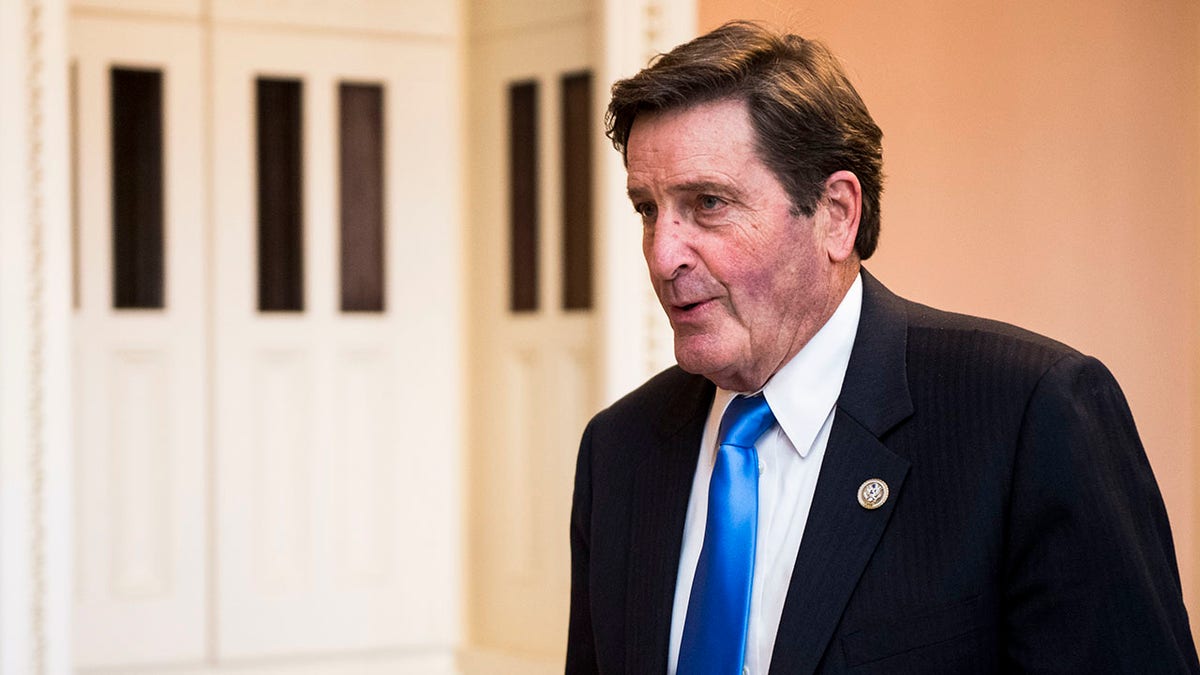
Rep. John Garamendi, D-Calif., walks through the U.S. Capitol. (Bill Clark/CQ Roll Call)
"One really important element here is what is going to come with Ukraine and the question of whether the United States is going to stay in the fight for Ukraine," Garamendi said, pointing to China’s ambitions to take Taiwan. "If we were to back out of that fight, it is a clear message to Xi that we are not a reliable ally for Taiwan and other countries in the Western Pacific."
Garamendi stressed the need for the United States to "get there early with whatever is necessary for Taiwan."
Waltz agreed, saying they will work on a bipartisan basis to push the Biden administration to arm Taiwan "beforehand."
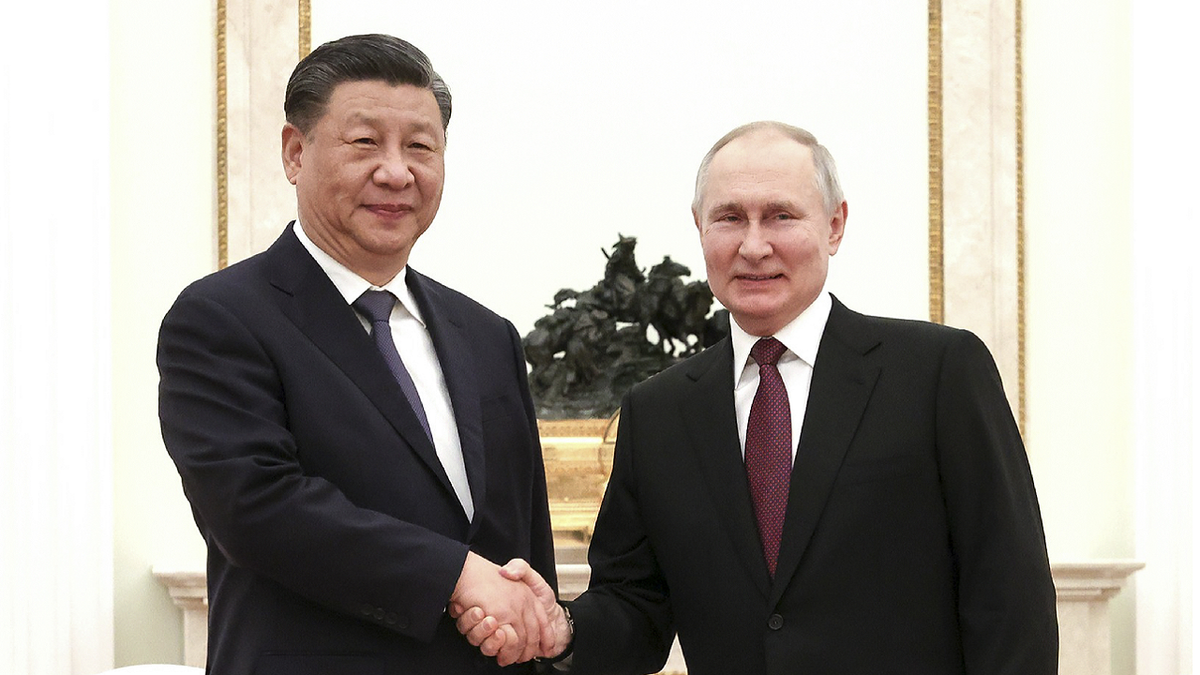
President Vladimir Putin and Chinese President Xi Jinping shake hands before a meeting at the Kremlin in Moscow March 20. (AP/Russian Presidential Press Office via AP)
"It would send a clear message to Xi that this will not go easily and hopefully make him continue to say, 'Not now, not yet,’" Waltz said.
But Waltz warned that U.S. deterrence is weakened.
"I think we are seeing our deterrence, and our admirals and generals are increasingly saying this louder and louder — our ability to deter, and therefore keep the peace, is being steadily eroded," Waltz said.
"We should listen to these dictators when they say what they’re going to do — that Xi is not going to pass the Taiwan problem and reunification off to the next generation. He intends to solve it on his watch, and I am increasingly concerned about our ability to deter. I feel like, honestly, we’re in a race against time right now."
HOUSE CHINA COMMITTEE CHAIR SAYS XI ‘DEADLY SERIOUS’ ABOUT INVADING TAIWAN
The interview with Waltz and Garamendi came days after the Pentagon made its largest-ever budget request for fiscal 2024 of $842 billion, a 3.2% increase from fiscal 2023.
The Pentagon cited the "seriousness" of the threats posed by Russia and China in its request and urged Congress to take action to approve the budget immediately, stating that delays pose a serious threat when facing an adversary like China.
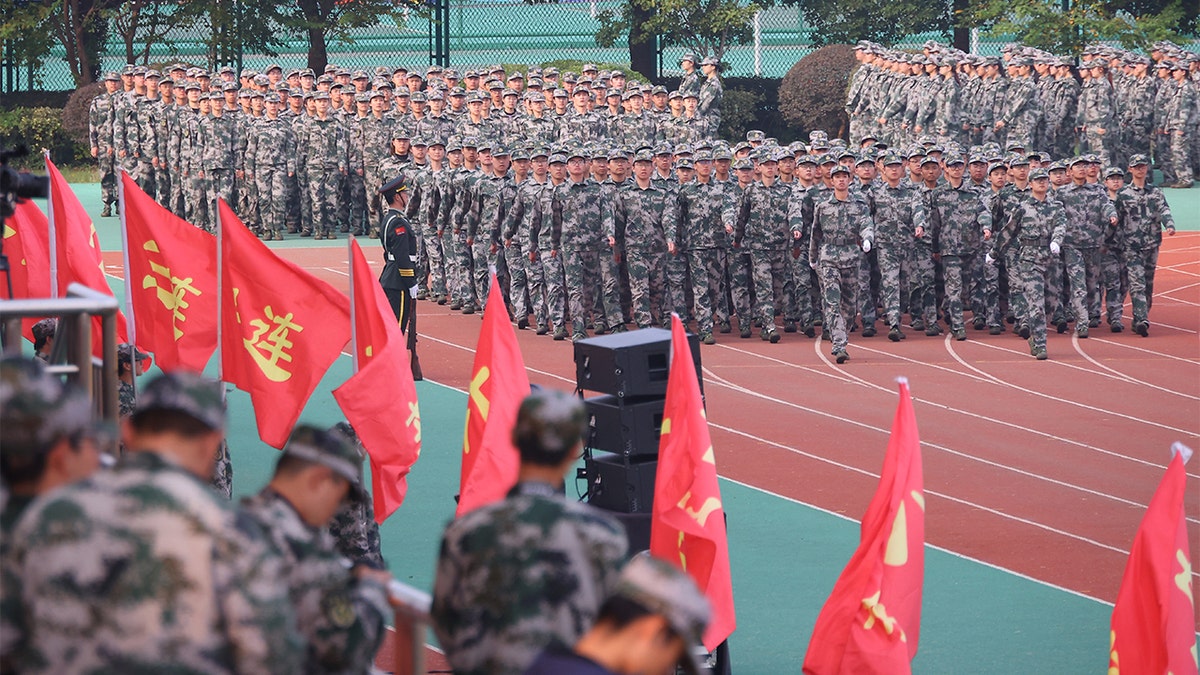
Freshmen take part in a military training at Southeast University Oct. 22, 2021, in Nanjing, Jiangsu Province of China. (Yang Bo/China News Service via Getty Images)
The U.S. announcement comes just weeks after China announced its own military budget of $230 billion, up 7.6% from last year.
"It is not the time for defense cuts, but it is always time for better investments," Waltz said.
As for readiness, Garamendi stressed the need to focus attention on the "maintenance" of U.S. equipment.
MCCARTHY’S CHINA MISSION: GIVE BIDEN A ‘BACKBONE,’ ‘EMPOWER’ HIM TO TACKLE CCP THREAT
"It is an ongoing problem," he said. "We don’t maintain what we have. We need to expand our commercial shipyards so that our ships can be repaired in a timely way and be able to be at sea more than they presently are."
Walz and Garamendi pointed to the shipbuilding industry in the United States, which they said has "completely, badly atrophied."
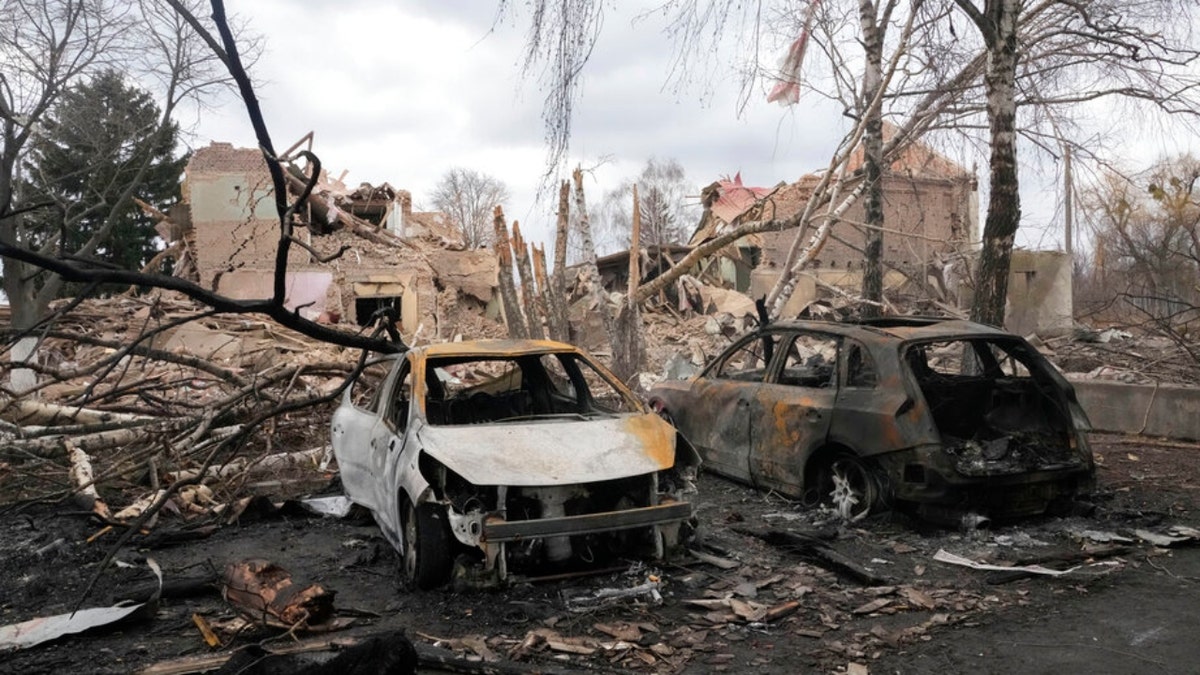
Gutted cars following a night air raid in the village of Bushiv, 40 kilometers west of Kyiv, Ukraine, March 4, 2022. (AP Photo/Efrem Lukatsky)
"Just to put it by point of comparison, the Chinese now have over 50,000 commercial ships of all different types and sizes. They can immediately flip a switch and have support for their Navy," Waltz explained. "We have less than 5,000 now. So, it is a 10 to 1 difference.
"It is just a massive, massive gaping disparity now, and it is going to take World War II-style, massive investments to — no pun intended — right the ship."
"We're in the process of developing a solution to that problem," Garamendi said. "And it would be to create a national maritime security program that would use the Jones Act fleet as the logistical force necessary to resupply the military in the Western Pacific by subsidizing Jones Act ships, so that they are militarily useful and available."
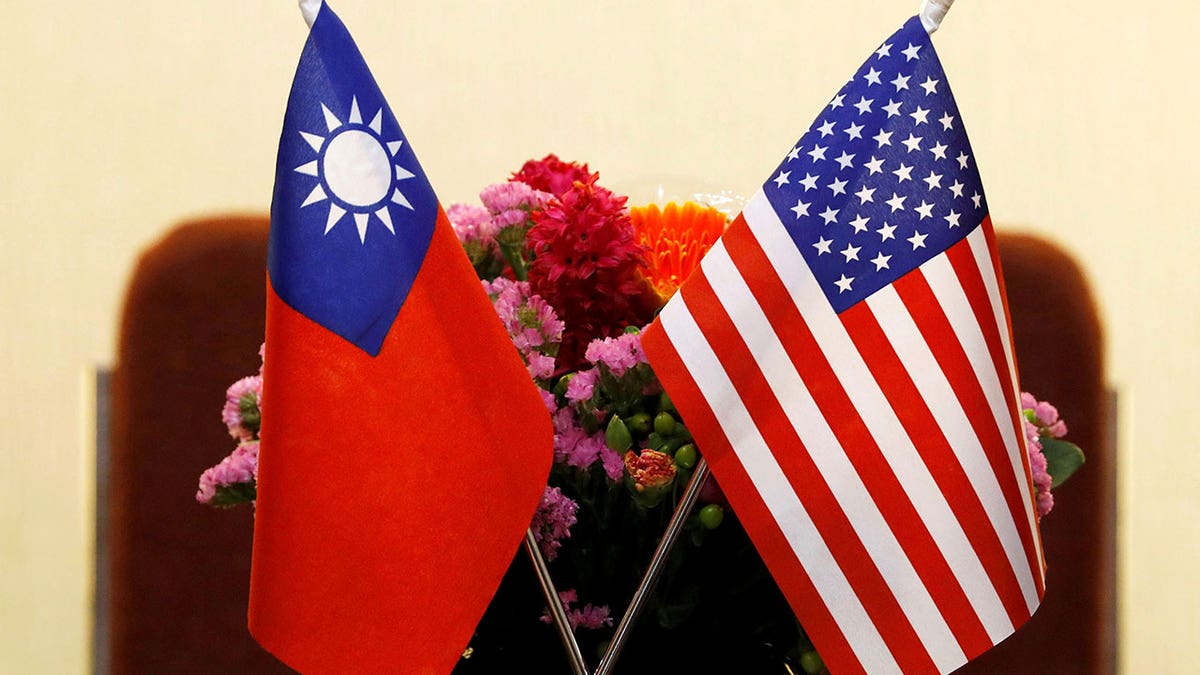
Flags of Taiwan and the U.S. are placed for a meeting in Taipei, Taiwan, March 27, 2018. (REUTERS/Tyrone Siu)
CHINA BOOSTS MILITARY SPENDING BY BILLIONS AS US WARNS OF POTENTIAL TAIWAN INVASION
Garamendi said the panel is "looking at different ways of accomplishing this goal."
Waltz and Garamendi said the panel's priorities include securing supply chains and ensuring that defense supply chains have reduced dependency on China from CHIPS to critical minerals.
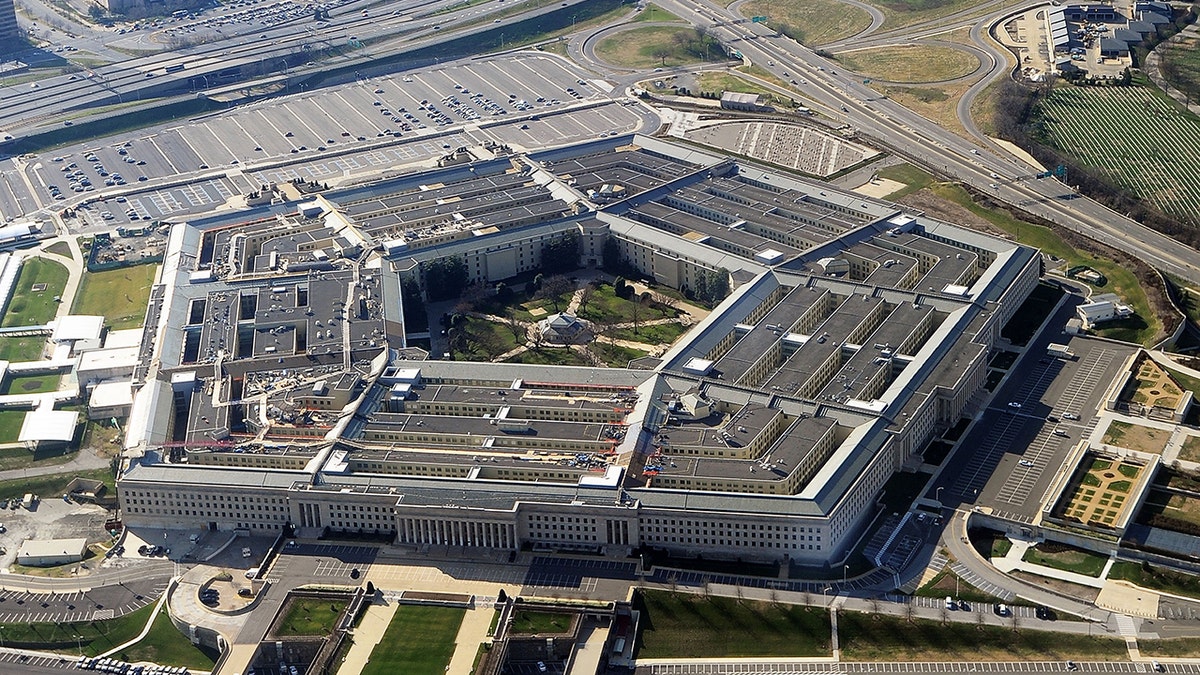
The Pentagon, the headquarters of the United States Department of Defense, is the world's largest office building by floor area. (Staff/AFP via Getty Images)
CLICK HERE TO GET THE FOX NEWS APP
Another focus is on "pushing fuel, ammunition stocks and supplies that we may need in any type of Taiwan scenario as far west as possible," Waltz said.













































